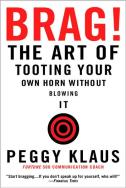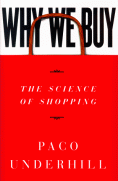I came across this post from Carl Grant on Sunday and felt like it was serendipity – the semester is almost over and on Saturday I had posted that it was time start working on my summer reading list. Carl talks about his encounter with a stranger in an airport and using her remark that librarianship is a dying profession as an opportunity to show her the value of libraries and librarians. My impression of the story is that he does it in a personal way – demonstrating how libraries can help HER. Having done this very same thing myself many times I could relate to Carl’s story and approach, so when he recommended four books I knew I’d be adding them to my summer reading list.
Blue Ocean Strategy: How to Create Uncontested Market Space and Make Competition Irrelevant
by W. Chan Kim and Renée Mauborgne. There is no question this book was written for business people, but it’s applicability to libraries makes it equally valuable for librarians. As the title implies, there is “blue ocean” and “red ocean”. The red ocean is the result of bloody competition and the “blue ocean” is a place where organizations can live and prosper because they offer unique value to those that are customers/members of their organization. Trying to figure out where and how we can offer differentiation for our users is a detailed process involving truly understanding who all are your competitors, what they’re offerings do and don’t offer, the appeal they have to your common users/members and where you can offer needed products and services to your users/members that they would value deeply. At the same time the book walks you through making sure that what you do remains consistent with your the core mission
The Filter Bubble: How the New Personalized Web Is Changing What We Read and How We Think
by Eli Pariser. In my opinion, this should be required reading for every librarian. Period. It’s that important. I find myself continually amazed when librarians note their members/users simply go to Google and just accept that’s the way it is. No, it’s not. Not unless you accept it and don’t work to change it. Of course to do that, you have to be able to explain to your members/users, why they’re better off talking to you and/or using your discovery tools/approaches when they’re looking to expand their knowledge, create new knowledge and how in doing that you’ll bring them additional value and benefits that’ll make it worthwhile. Which is exactly why I recommend people read this incredibly important book. It will help you understand why what we do in libraries is so VERY different than what Google does with their search engine.
The Atlas of New Librarianship
by David Lankes. Again, in my opinion, this work should be required reading for every librarian. Although, I’ll note that this work is not a light read in any sense of the word. It’s a massive book because it covers a massive amount of territory. So, you won’t be carrying it along on road-trips (although I have actually done so on occasion – it’s very good exercise). There are few works in our profession that I would consider more compelling, more invigorating or more inspiring than this one. When you’re done with this work, if you don’t want to go out and change the world by convincing people of the value of librarianship, you’re blood isn’t red or your heart isn’t beating. If the size of the work intimidates you, then you can try his subsequent book, which is based on the Atlas and is called Expect More: Demanding Better Libraries For Today’s Complex World
. While written for supporters and/or board members of libraries, it covers a lot of the same themes, just with less depth.
Fortunately I already have the two Lankes books. I will be adding the other two to the list of titles to look for at the local used bookstore the week after finals.
This got me thinking about books I recommend over and over again for different reasons. There are a lot of them so I thought I would try to pull out a few that would have the broadest appeal to readers.
My Recommendations:
 Diffusion of Innovations
Diffusion of Innovations by Everett M. Rogers. This book isn’t about librarians or even technology but the diffusion of innovation – all types of innovations. Examples in the book include things such as boiling water before drinking in areas of the world where clean, safe drinking water isn’t available. But that is why it appealed to me. As someone who has been working on, and talking about, innovating libraries for years I know the process is complicated and delicate. When Rogers discusses how and why it is so difficult to convince people to boil water for their health you start to realize how complex and complicated convincing people to change really is. He also discusses and categorizes the types of innovation adopters – innovators, early adopters, early majority, late majority, and laggards – and the strengths and weakness of each. Personally I prefer a different word than “laggard” I think it has negative connotations, so I have used reluctant or traditionalist, which cover his description of that group.
 Brag!: The Art of Tooting Your Own Horn without Blowing It.
Brag!: The Art of Tooting Your Own Horn without Blowing It.I have blogged about Klaus’s book before when I talked about self promotion. Like many books I apply what I read here to myself as a person, and also to the library profession. Klaus talks about 6 myths:
- Myth #1: A Job Well Done Speaks For Itself
- Myth #2: Bragging Is Something You Do During Performance
- Myth #3: Humility Gets You Noticed
- Myth #4: I Don’t Have To Brag; People Will Do It For Me
- Myth #5: More Is Better
- Myth #6: Good Girls Don’t Brag
- Myth #7: Brag Is A Four-Letter Word
If you look at each of these you can apply them to yourself but also libraries as a whole and as Lee Raine pointed out in his Changing World of Libraries presentation we have a PR problem opportunity. Not everything will be applicable but applying what you read in Klaus’s book to your library, or libraries as a whole, is helpful.
 The No Asshole Rule: Building a Civilized Workplace and Surviving One That Isn’t
The No Asshole Rule: Building a Civilized Workplace and Surviving One That Isn’t by Robert Sutton. This book isn’t going to help you talk to strangers in the airport, though it may make you more likely to feel good about where you work so more prone to saying good things about libraries in general. I am including this because I strongly feel that all library management should read it, live by it, and keep a copy at their desk. Librarianship is not always an easy job and there is no excuse for making it worse by allowing negativity to flourish behind the scenes. In 2010 when I wrote There is No Excuse for Bullies at Work (or Anywhere Else) sharing that
… 37% of American workers — roughly 54 million people — have been bullied at work according to a 2007 survey by the Workplace Bullying Institute. The consequences of such bullying spreading to the targets’ families, coworkers, and organizations. Costs include reduced creativity, low morale, and increased turnover — all factors that weigh heavily on the bottom line. Among targets of bullying, 40% never told their employers and, of those who did, 62% reported that they were ignored. – Create a Bully-Free Workplace HBR
Managers take note – a bully free work environment affects more than the mood in the office.
Workplace bullying directly impacts the bottom line by affecting productivity, wellness (with subsequent rise in employer benefit costs), attrition, attraction and retention. – HBR
The response on the blog, Twitter, and direct emails to me was amazing. Far too many librarians have experienced bullying at work.
 Why We Buy: The Science of Shopping–Updated and Revised for the Internet, the Global Consumer, and Beyond
Why We Buy: The Science of Shopping–Updated and Revised for the Internet, the Global Consumer, and Beyond by Paco Underhill. This book is about retail shopping but so much of it could be applied to libraries. Although we don’t measure our success in dollars and cents we do use transactions and visits. Much of what Underhill covers on physical space, layout, atmosphere can be applied directly to libraries. Plus if you’re looking for some great questions for a patron survey you will find plenty of inspiration in here or if you want to watch how your patrons use the library like Underhill did:
- Why did they come to the library?
- A specific title? Did they find it?
- Did they get something in addition to the goal title?
- Did they get something else? Why?
- Browsing? Where did they start? Why?
- What did they pick up? Why?
- Put back down? Why?
- What did they select eventually? Why?
- What areas of the library are browsed the most? How does this compare to the areas with the most check outs?
- How does the location of the aisle and PACs affect their experience?
- Where do they get frustrated and give up?
- What are the traffic patterns in the library? Are they moving through the building like we think? If not do we need to move our signage?
- How often to they approach one desk only to be redirected to another?
What would you add?

Leave a comment